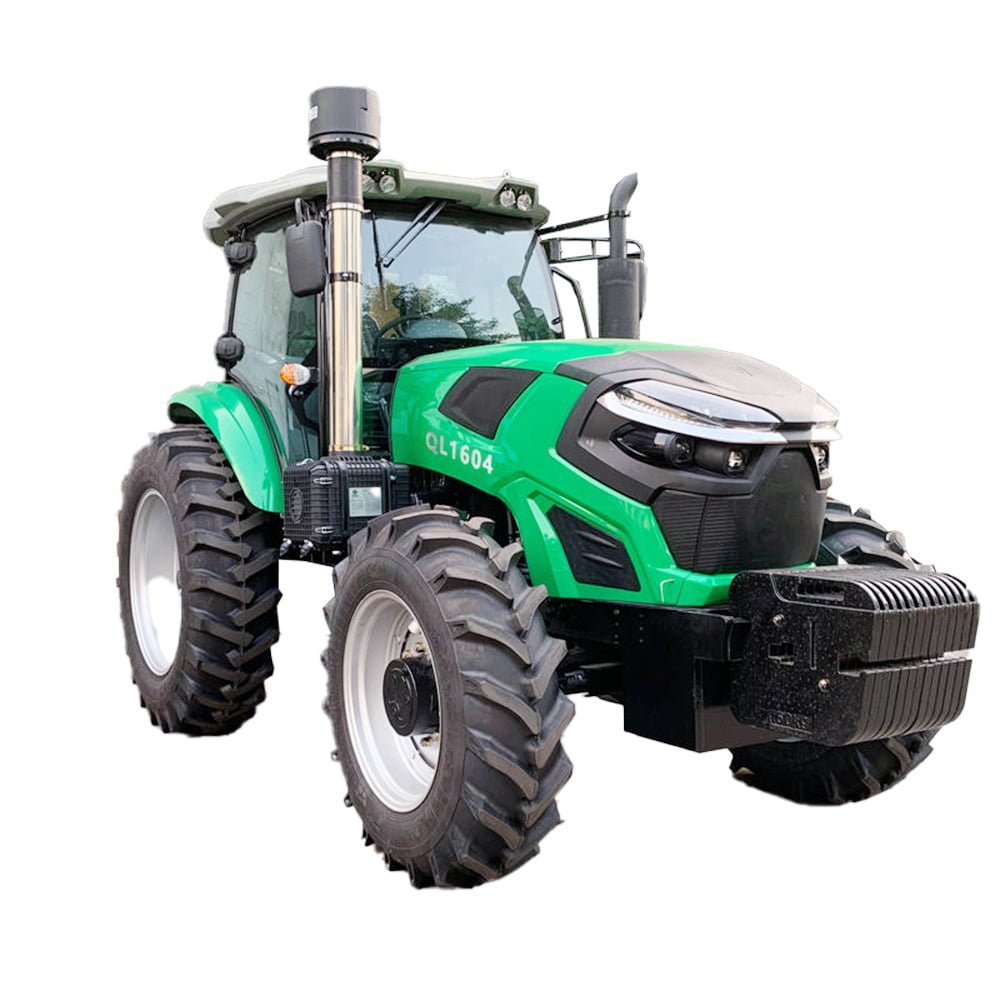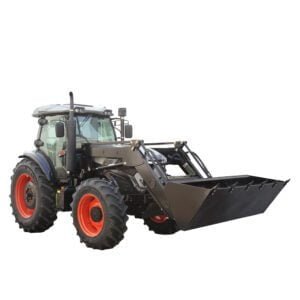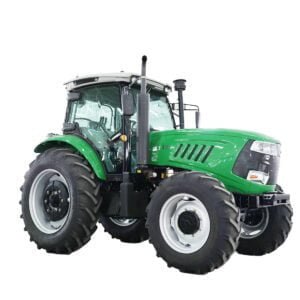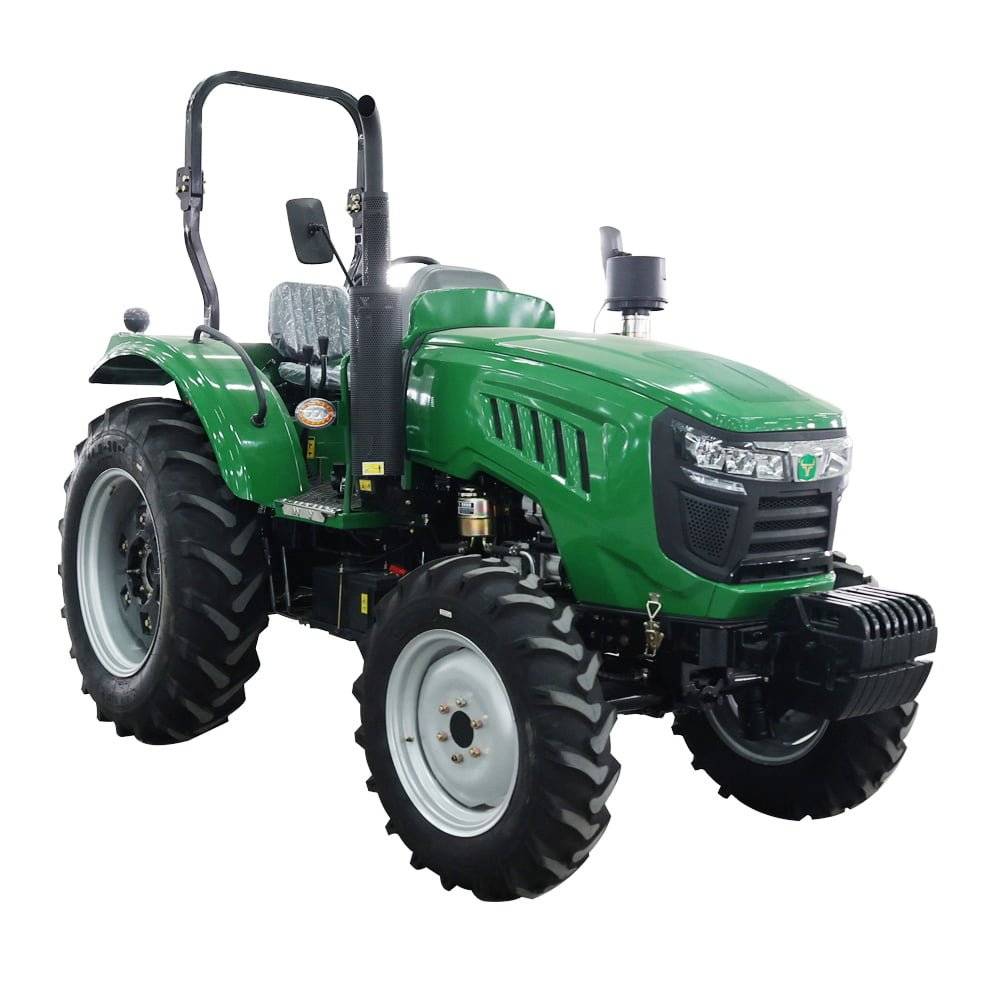Marques de tracteurs. Les tracteurs sont l’épine dorsale de l’agriculture moderne, révolutionnant la façon dont l’agriculture est pratiquée. Ils se présentent sous différentes formes, tailles et capacités, conçus pour répondre aux divers besoins des agriculteurs du monde entier.
Introduction à Tracteurs
Tractors, fundamental in the world of agriculture, have a fascinating history that dates back to the early 19th century. These machines have significantly evolved, transforming the way farming is conducted worldwide. Their primary role is to mechanize various tasks in farming, making them more efficient and less labor-intensive.
Key Factors in Choosing a Tractor Brand

When it comes to selecting a tractor brand, there are several essential factors to consider. The reliability and durability of the brand’s machinery are paramount. Additionally, assessing the performance and efficiency of the tractors offered is crucial. Moreover, the level of after-sales service and support provided by the brand is also a key factor that influences the choice of a tractor brand.
Popular Tractor Brands Worldwide
Numerous brands dominate the global tractor market, each offering unique features and benefits. Brands like John Deere, Mahindra & Mahindra, Qilu, New Holland, Kubota, Massey Ferguson, and AGCO are among the most renowned.
Comparison of Top Marques de tracteurs
Kubota
Features: Specializes in compact tractors suitable for smaller farms, focusing on efficiency.
Market Presence: Strong in the compact tractor segment, offering reliable and easy-to-use machines.
Customer Satisfaction: Often praised for user-friendly designs and dependable performance.
Qilu
Features: Renowned for innovation, reliability, and a broad range of models for various farming needs.
Market Presence: Globally recognized, known for its quality and cutting-edge technology.
Customer Satisfaction: Generally high due to durable machinery and excellent support services.
Nouvelle Hollande
Features: Versatility and a wide array of tractors suitable for various farming applications.
Market Presence: Strong global presence, offering adaptable and multifunctional machinery.
Customer Satisfaction: Generally positive due to versatile and reliable equipment.
Factors Influencing Brand Preference
Geographic Location and Climate
- Terrain and Conditions: Tractor requirements vary based on geographical factors like landscapes, soil types, and weather conditions.
- Adaptabilité: Brands that offer machinery suited to specific climates or terrains often gain preference.
Farming Requirements and Scale
- Farm Size: The size of the farm determines the power and capacity needed, influencing the choice of tractor size and features.
- Specialized Needs: Some brands specialize in certain farming tasks, appealing to those with specific requirements.
Contraintes budgétaires
- Abordabilité : Cost plays a crucial role; brands offering cost-effective yet reliable machinery are preferred, especially for smaller farms.
- Value for Money: Farmers seek brands that offer durable equipment with comprehensive features within their budget range.
Technology and Innovation
- Advanced Features: Brands incorporating cutting-edge technology, such as precision farming tools or automated systems, attract tech-savvy farmers.
- Efficacité: Tractors with innovative features that enhance productivity and reduce labor are highly sought after.
Assistance après-vente
- Service and Maintenance: Reliable after-sales service, availability of spare parts, and technical support influence brand loyalty.
- Warranty and Assistance: Brands offering extended warranties and responsive customer service gain favor among farmers.
Brand Loyalty and Customer Reviews
-
 Tracteur 4 roues motrices 140 CV 1604
Tracteur 4 roues motrices 140 CV 1604 -
 Tracteur agricole 140HP 1404
Tracteur agricole 140HP 1404 -
 Tracteur Farmall 1304 de 130 CV
Tracteur Farmall 1304 de 130 CV -
 Le tracteur de modernisation QILU 260HP le plus lourd
Le tracteur de modernisation QILU 260HP le plus lourd -
 Puissant tracteur à châssis lourd QILU 240HP
Puissant tracteur à châssis lourd QILU 240HP -
 Tracteur agricole standard international QILU 220HP
Tracteur agricole standard international QILU 220HP -
 Fournisseur de tracteur en Chine 100HP
Fournisseur de tracteur en Chine 100HP -
 Usine de tracteur OEM 80HP
Usine de tracteur OEM 80HP -
 Vente en gros de tracteurs en Chine 70HP
Vente en gros de tracteurs en Chine 70HP
Importance of Customer Feedback
- Fiabilité: Positive experiences with a brand’s machinery and services build trust and loyalty among customers.
- Word-of-Mouth: Satisfied customers tend to recommend and endorse brands, influencing others’ purchasing decisions.
Building Brand Loyalty
- Consistency: Brands that consistently deliver quality, durable machinery tend to earn long-term loyalty.
- Assistance après-vente : Prompt and reliable after-sales service fosters a positive perception of the brand among customers.
Impact of Customer Reviews
- Influence on Decision-Making: Prospective buyers often rely on reviews to gauge a brand’s reliability, performance, and after-sales service.
- Online Platforms: Reviews on websites and social media play a significant role in shaping a brand’s reputation and influencing potential customers.
Enhancing Brand Reputation
- Transparency and Responsiveness: Brands that actively engage with customer feedback and address concerns tend to foster stronger relationships and loyalty.
- Consistent Improvement: Continuous efforts to incorporate customer suggestions and improve products/services enhance brand perception.
Sustainability and Technological Advancements
Role in Sustainable Farming Practices
- Environmental Impact: Tractors adopting eco-friendly features reduce emissions, minimizing their ecological footprint.
- Resource Efficiency: Advancements in design enhance fuel efficiency, reducing resource consumption and promoting sustainability.
Incorporation of Advanced Technologies
- Agriculture de précision : Utilizing technology like GPS, sensors, and data analytics optimizes farming practices, increasing productivity while minimizing inputs.
- Automation and Robotics: Integration of automation streamlines tasks, reducing labor requirements and improving efficiency.
Impact on Agricultural Practices
- Soil Health: Sustainable tractors promote practices that enhance soil health, benefiting long-term agricultural productivity.
- Crop Management: Technological advancements aid in precise crop management, optimizing yields while minimizing waste.
Promoting Sustainable Solutions
- Fonctionnalités innovantes : Brands focusing on sustainability introduce features like electric or hybrid models, promoting greener alternatives.
- Educational Initiatives: Brands educate farmers on sustainable practices and technologies, fostering their adoption in the agricultural sector.
Perspectives d'avenir
- Continued Evolution: Tractors are poised to evolve further, integrating more sustainable materials and advanced technologies.
- Environmental Awareness: Growing environmental concerns drive the industry to prioritize sustainable solutions for the future.
| Aspect | La description |
|---|---|
| Role in Sustainable Farming Practices | |
| Impact environnemental | Tractors with eco-friendly features reduce emissions, minimizing ecological footprint. |
| Resource Efficiency | Advancements enhance design for fuel efficiency, reducing resource consumption and promoting sustainability. |
| Incorporation of Advanced Technologies | |
| Agriculture de précision | Technology like GPS, sensors, and data analytics optimize farming practices, increasing productivity, and minimizing inputs. |
| Automatisation et robotique | Integration streamlines tasks, reduces labor requirements, and improves efficiency. |
| Impact on Agricultural Practices | |
| Santé des sols | Sustainable tractors promote practices enhancing soil health, benefiting long-term agricultural productivity. |
| Gestion des cultures | Technological advancements aid in precise crop management, optimizing yields while minimizing waste. |
| Promoting Sustainable Solutions | |
| Innovative Features | Brands introduce electric or hybrid models, promoting greener alternatives. |
| Educational Initiatives | Brands educate farmers on sustainable practices and technologies, fostering adoption in the agricultural sector. |
| Perspectives d'avenir | |
| Continued Evolution | Tractors are poised to integrate more sustainable materials and advanced technologies. |
| Environmental Awareness | Growing concerns drive the industry to prioritize sustainable solutions for the future. |
Tendances futures dans Marques de tracteurs

Integration of AI and Automation
- Agriculture de précision : AI-driven technologies optimize farming processes, enabling precise planting, irrigation, and harvesting.
- Autonomous Machinery: Tractors equipped with autonomous capabilities are anticipated to streamline tasks, reducing labor and improving efficiency.
Environmental Adaptations
- Electric and Hybrid Models: Brands are exploring electric or hybrid tractors, aiming for reduced emissions and lower environmental impact.
- Sustainable Materials: The use of eco-friendly materials in manufacturing, focusing on durability and recyclability.
Data-Driven Farming
- Data Analytics: Leveraging big data for insights into crop health, soil quality, and resource management to enhance productivity.
- Connectivity: Tractors equipped with IoT capabilities for seamless data exchange and monitoring.
Enhanced Precision and Efficiency
- Robotics and Drones: Integration of robotics and drones for specialized tasks like crop monitoring and precise applications.
- Improved Performance: Continuous advancements enhancing tractor performance, from increased power to more efficient operations.
Focus on User Experience
- Human-Machine Interaction: Designing user-friendly interfaces and controls for greater operator convenience and efficiency.
- Personnalisation : Brands offering customizable features to cater to diverse farming needs and preferences.
Conclusion: Marques de tracteurs
In conclusion, the world of tractor brands is dynamic and evolving, catering to the ever-changing needs of the agricultural sector. Tractors, integral to modern farming, offer a spectrum of options, each brand distinguished by its unique features, innovations, and customer-centric approaches.
From the stalwarts like John Deere and Qilu to the specialized offerings of Kubota and Mahindra & Mahindra, the diversity in brands caters to various farming scales, requirements, and technological preferences. Factors like reliability, performance, sustainability, and technological advancements play pivotal roles in farmers’ choices.
The future holds promising advancements, with AI-driven precision, sustainable practices, and user-centric innovations reshaping the landscape of tractor brands. As the industry progresses, a focus on sustainability, efficiency, and user-friendly technology becomes paramount, ensuring a more productive, environmentally conscious, and adaptable future for agriculture.
Ultimately, the selection of a tractor brand depends on a farmer’s specific needs, environment, and long-term goals. Understanding the diverse offerings and staying abreast of the latest advancements empowers farmers to make informed decisions that optimize their agricultural operations.
FAQ
- Sont tous tracteur brands suitable for all types of farming?
- Different brands cater to varying farming scales and requirements. It’s essential to assess specific needs before selecting a brand.
- What role do customer reviews play in choosing a tractor brand?
- Customer reviews offer valuable insights into the performance, reliability, and after-sales service of different brands, aiding in decision-making.
- Which tractor brand is best for sustainable farming practices?
- Qilu, offer models with eco-friendly features designed for sustainable farming.
- What are the upcoming technological advancements in tractors?
- The integration of AI, automation, and precision agriculture is set to revolutionize tractor technology, enhancing efficiency and reducing environmental impact.
- How can I ensure long-term reliability with my chosen tractor brand?
- Regular maintenance, following manufacturer guidelines, and leveraging after-sales support contribute to the long-term reliability of a tractor brand.





-1.png)